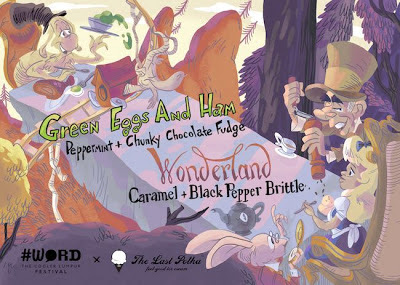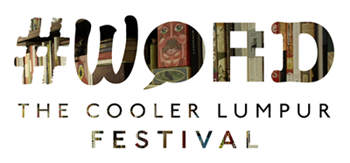The latter will, among other things, will see the launch of the second Fixi Retro title, Yang Nakal-nakal, a compilation of some short stories and poems by the late Usman Awang. The Black 505 rally's been postponed to next week, but it looks like the launch is still taking place on 16 June.
There may be a good reason why book publishers aren't swarming the e-publishing bandwagon: the "awkward and inconsistent" technology.
The closest thing to a single file standard, e-pub, is still far from platform-agnostic and notorious for destroying formatting elements, which limits what writers and designers can do structurally if they’re planning for digital.
Sounds like the argument over HTML standards all over again. But wait till technology catches up, or if the players in the e-book industry get their shit together and agree on something.
A publisher is being sued by Scarlett Johansson because a French novel featuring a woman who resembles the actress allegedly "violates her privacy and includes a 'fraudulent use of her image rights'." The report adds that "The heroine of Delacourt's La Premiere Chose qu’on Regarde ("The First Thing We Look At") is Janine Foucamprez, a small-time model from northern France who is blighted by her resemblance to Johansson."
Perhaps Ms Johansson (or her PR machinery) is miffed by the "blighted" part. And ... hold on, she's only 28?
Elsewhere:
- RIP Iain M Banks. Less than three months after he announced he had terminal cancer, Banks passed on. Despite the efforts of his heroic publishers, his last novel failed to hit the shelves before his departure. As tributes poured in, Neil Gaiman eulogises him in the Guardian. Also, RIP Tom Sharpe. Pity I never read any of their books.
- Are celebrity's kids books bad for literature and kids books in the long run? Probably, if quality doesn't improve. In that news report, Julia Donaldson, writer of the Gruffalo books, says writing for kids is not easy at all. "In some ways children are probably harder to please than adults and there are so many excellent children’s writers out there who in terms of style, plot and characterisation are just as good as any writer for adults."
- Why John Green (Looking for Alaska) will never self-publish. "Impassioned" is kind of an understatement.
Lev Raphael takes offense at what he sees as Green's attack on indie publishing via a "faux cultural belief" ("We must strike down the insidious lie that a book is the creation of an individual soul laboring in isolation. We must strike it down because it threatens the overall quality and breadth of American literature...").
"If Green believes that indie books aren't ever edited, produced, and marketed by a team – though likely smaller than in legacy publishing – he knows less about the industry than he thinks," Raphael says. - When is it fine to not finish a book? When it doesn't pass the fifty-page test, apparently. You can always come back to it, anyway, this English prof suggests. However: "For my students, the answer is easy: if I assigned the book, it's not alright to quit partway through." Fair enough.
- Eight rules for writing fiction, some of which, at some point in time, everybody who writes fiction forgets.
- Americans, says Clive James, aren't good at hatchet jobs. "Any even remotely derogatory article in an American journal is called 'negative,' and hardly any American publication wants to be negative." Did James miss Ron Charles's opinion of Lionel Asbo, or did he feel it was too tame?
- May she be forgiven: AM Homes denies Hilary Mantel a third straight award by winning the Women's Prize for Fiction, which will be sponsored by Bailey's next year - HIC. Meanwhile, Kevin Barry wins this year's International IMPAC Dublin Literary Award for City of Bohane.
- Pages from the diary of Alfred Rosenberg, Hitler's aide and top Nazi leader, have reportedly been found. The documents look real, but one has to be wary, in light of a famous Nazi diary hoax.
- Jonah Lehrer has a book deal - and people should be concerned.
Categories:
Book Marks



















